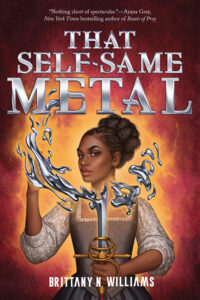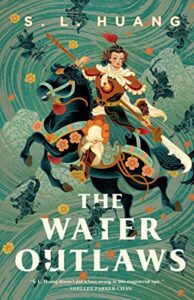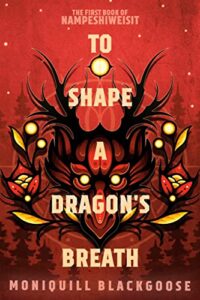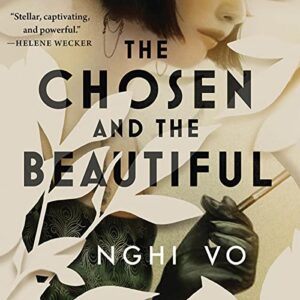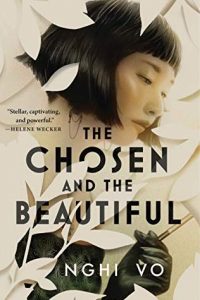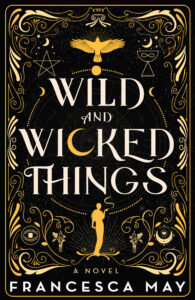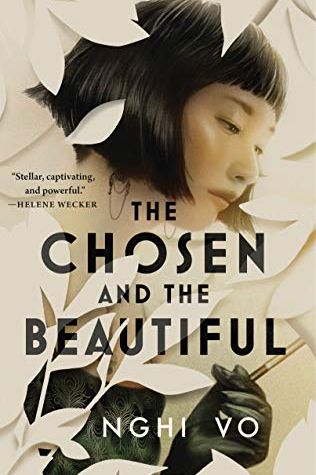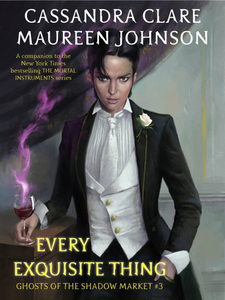At the age of sixteen, Joan Sands possesses exceptional craftsmanship skills that she employs to create and maintain the stage blades for The King’s Men, a theatrical troupe led by William Shakespeare. Joan’s remarkable blade-crafting ability is rooted in her magical power to manipulate metal, bestowed upon her by her guiding deity, the head Orisha, Ogun. Hailing from a family blessed by Orishas, the Sands have always been attuned to the presence of Fae in London.
Normally, this awareness entails little more than observing the subtle luminance enveloping the Fae as they attempt to assimilate into London’s social fabric. However, recently, there has been a noticeable rise in violent Fae assaults. When Joan injures a formidable Fae assailant and rescues a nobleman’s son in the process, she becomes entangled in the intricate web of political machinations spanning both the human and Fae realms.
This is a captivating story! Joan’s journey is portrayed with such depth and authenticity that she feels like a genuine person, navigating the complexities of being forced to grow up too soon while still grappling with relatable teenage experiences. Joan’s confidence in her bisexuality, coupled with her witty humor about her romantic encounters, adds a layer of realism that’s both endearing and relatable. In avoiding making Joan’s sexuality a central point of conflict, the author’s depiction of her as a casually queer person is remarkably refreshing. The near absence of queerphobia is a commendable aspect of the book. Rather than being related to her sexuality as a whole, Joan’s central romantic conflict involving her strong feelings for two people at once, which brings a rich complexity to her character, as she grapples with matters of the heart.
Similarly, while Joan’s Blackness is not used as a central conflict point, this book deftly addresses complex issues of race and class. Joan and her family are accepted within their immediate circle, but the author skillfully exposes the insidious racism perpetuated by the upper classes. The narrative masterfully highlights the disturbing tendency toward fetishization, as well as the harmful notion of there being a “correct” mold for a Black person. By shedding light on these often-overlooked aspects, the book invites readers to confront uncomfortable truths.
Finally, the portrayal of the Fae lore is a standout feature of this novel. Rather than the typical romanticized depiction, the Fae are presented as gritty, malevolent creatures, much more in keeping with their mythological depictions. The exploration of their darker aspects adds an intriguing layer of tension and suspense to the narrative. Similarly, the incorporation of Orisha into the story is a brilliant addition that sets this book apart. It’s refreshing to see the inclusion of elements from a lesser-explored mythology, and I’m eager to learn more about Orisha in the upcoming sequel.
All in all, this novel successfully weaves together multifaceted characters, captivating Fae lore, and unique mythological influences, creating an immersive and unforgettable reading experience. I am greatly looking forward to what the author has in store for us in the sequel!
Content warnings: racism, sexism, murder, dismemberment, blood, some gore.

